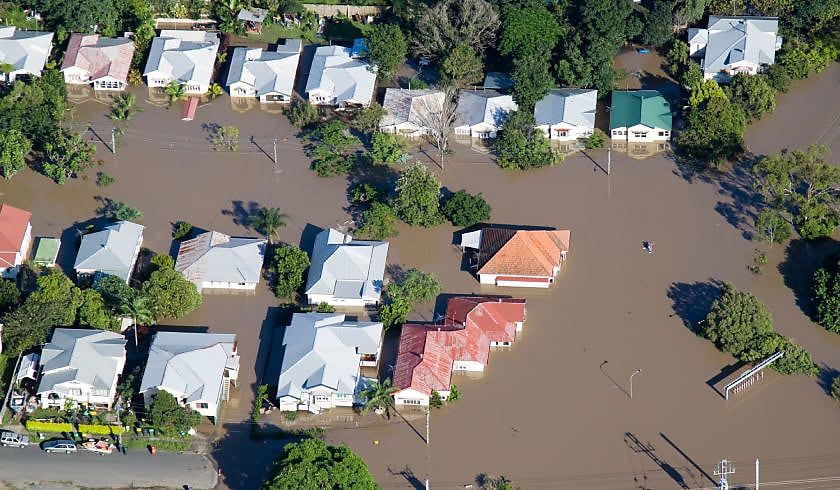The biggest Australian crisis that no one talks about
We have seen more than our fair share of crises in the past half decade. At times there’s been a looming economic crisis, the rental crisis, the crisis in overseas conflict, and of course, the COVID-19 crisis.

But right now, we’re dealing with a crisis that gets too little attention given its far-reaching implications and insidious nature. It’s a crisis that is slowly infecting us all in one way or another, and most people don’t realise the extent of its impact.
You’re out of free articles for this month
To continue reading the rest of this article, please log in.
Create free account to get unlimited news articles and more!
Yes – the great Australian insurance crisis is well underway. Its devastating effects are reaching almost every sector in the nation, and property is at the top of its hit list.
The Australian insurance crisis
At present we are entrenched in an insurance catastrophe of epic proportions that will be felt by almost every Aussie in one way or another.
Natural disasters have played their role. Be it floods, bushfire or pandemic – their prevalence in recent years has been at biblical proportions. The fallout has been dramatic with properties destroyed and businesses shut down.
There’s been a colossal strain on the insurance sector, but people need to realise the consequences aren’t isolated to policyholders. The impacts flow through to us all in myriad ways.
The fallout
The most recent inflation data released by the Australian Bureau of Statistics – the one that scared many bank economists into lowering their odds on interest rates rising before year’s end – showed that insurance was the number one category when it came to cost increase. While overall annualised inflation hit 4 per cent, insurance premiums rose a staggering 14 per cent during that time – the highest percentage gain across every expenditure class in the analysis.
This monumental increase in insurance has left many businesses with a dilemma. They’re asking: “Should I keep operating when premium costs are decimating my bottom line?”
Some even make the extremely dangerous decision not to get insurance. These businesses and individuals are just one disaster away from financial annihilation. In some cases, there could even be legal implications. Some businesses will even lose work because certain customers require their contractors and suppliers to carry insurance.
I’ve even seen instances where businesses are deemed uninsurable by insurers. Can you imagine that, in good faith, a profitable business approaches several insurers only to be told each time that they’re too risky to insure?
The damage this is doing to the fabric of our communities can’t be overstated. Small businesses are the heartbeat of our suburbs and they’re having to shut up shop or lay off staff because insurance costs have gone ballistic.
Another facet of the crisis is the epic level of underinsurance across Australia. To reduce premiums, some customers will be purposely conservative in their insurance value assessments. Throw in the fact that many use notoriously inaccurate online calculators to assess this very important figure and you can see why underinsurance is rife.
MCG’s analysis of more than 2,000 reports revealed that across multiple property sectors, Aussie assets were, on average, underinsured by 24 per cent. Residential property alone is underinsured by 18 per cent on average. I am genuinely worried for these people, if there’s an insurance event and they need to make a claim.
As mentioned earlier too, rising insurance costs are the engine fuelling risks of a further interest rate increase which will drag on the finances of almost every household in the nation.
What are the solutions?
The fact is that the downsides of the insurance crisis are widespread and insidious. We simply must do something to address the situation.
Firstly, I believe regulation is essential. As unpopular as that may sound, I think we’ve reached a point where political intervention is required. It could be in the form of limiting the degree of premium increases each renewal.
There should also be insurance subsidies that essential small businesses can access to ease the burden.
Another thing that would help is accurate insurance value assessments. Accurate insurance valuations equate to more precise data and realistic premium pricing. The banning of online calculators as a method of assessment would be a start. Insurance values should also be updated annually.
This is also why insurance brokers are invaluable. Not only can they shop around to secure you the most competitive premium in the market, but they also simplify policy details and ensure there are no loopholes for non-payment by insurers in the event a claim is lodged.
The insurance crisis is here, and it feels unassailable – but it isn’t … if we take action now. A concerted effort to address the scourge of rising insurance costs is needed urgently. The longer we leave it, the more crippling the impacts will be.
Marty Sadlier is the founding director and owner of MCG Quantity Surveyors.
